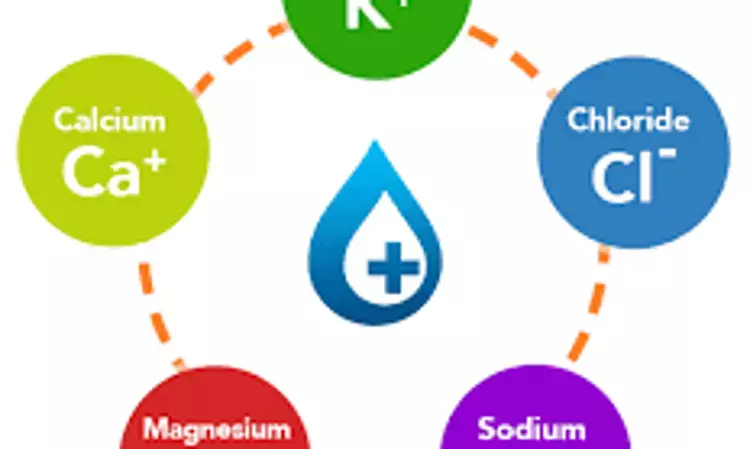- Home
- Medical news & Guidelines
- Anesthesiology
- Cardiology and CTVS
- Critical Care
- Dentistry
- Dermatology
- Diabetes and Endocrinology
- ENT
- Gastroenterology
- Medicine
- Nephrology
- Neurology
- Obstretics-Gynaecology
- Oncology
- Ophthalmology
- Orthopaedics
- Pediatrics-Neonatology
- Psychiatry
- Pulmonology
- Radiology
- Surgery
- Urology
- Laboratory Medicine
- Diet
- Nursing
- Paramedical
- Physiotherapy
- Health news
- Fact Check
- Bone Health Fact Check
- Brain Health Fact Check
- Cancer Related Fact Check
- Child Care Fact Check
- Dental and oral health fact check
- Diabetes and metabolic health fact check
- Diet and Nutrition Fact Check
- Eye and ENT Care Fact Check
- Fitness fact check
- Gut health fact check
- Heart health fact check
- Kidney health fact check
- Medical education fact check
- Men's health fact check
- Respiratory fact check
- Skin and hair care fact check
- Vaccine and Immunization fact check
- Women's health fact check
- AYUSH
- State News
- Andaman and Nicobar Islands
- Andhra Pradesh
- Arunachal Pradesh
- Assam
- Bihar
- Chandigarh
- Chattisgarh
- Dadra and Nagar Haveli
- Daman and Diu
- Delhi
- Goa
- Gujarat
- Haryana
- Himachal Pradesh
- Jammu & Kashmir
- Jharkhand
- Karnataka
- Kerala
- Ladakh
- Lakshadweep
- Madhya Pradesh
- Maharashtra
- Manipur
- Meghalaya
- Mizoram
- Nagaland
- Odisha
- Puducherry
- Punjab
- Rajasthan
- Sikkim
- Tamil Nadu
- Telangana
- Tripura
- Uttar Pradesh
- Uttrakhand
- West Bengal
- Medical Education
- Industry
Hypochloremia may increase in-hospital mortality and hospital stay in critically ill patients with HF

Hypochloremia may increase in-hospital mortality and hospital stay in critically ill patients with HF suggests a new study published in the International Journal of Cardiology.
A study was done to assess whether serum chloride predicts risk of death in intensive care unit (ICU) patients with heart failure (HF) and the effect of bicarbonate on the efficacy of serum chloride in predicting risk of death in ICU patients.
Methods: A total of 9364 HF patients hospitalized in the ICU were enrolled. Patients were divided into hypochloremia (< 96 mEq/L), normal chloride (96–108 mEq/L), and hyperchloremia (> 108 mEq/L) groups. Similarly, we divided the serum bicarbonate level into three groups: low bicarbonate (< 22 mEq/L), medium bicarbonate (22–26 mEq/L), and high bicarbonate (> 26 mEq/L). The outcome of this study was in-hospital mortality. Then, we analyzed the association between abnormal serum chloride and mortality according to the category of serum bicarbonate and assessed the interaction effect. Restricted cubic spline (RCS) was used to show possible nonlinear associations.
Results: In the overall study population, hypochloremia was associated with a higher risk of in-hospital mortality than normal chloride (odds ratio [OR] 1.54, 95% confidence interval [CI] 1.26–1.86, P < 0.001), hyperchloremia was not significantly related to in-hospital mortality (OR 1.00, 95% CI 0.85–1.19, P = 0.962). However, a linear association between serum chloride and in-hospital mortality was found in the low and normal bicarbonate groups (all P for nonlinear >0.05).
Hypochloremia is associated with in-hospital mortality and longer hospital stay in critically ill patients with HF. In addition, risk of death in the low and medium serum bicarbonate groups decreased with increasing serum chloride level.
Reference:
The association between serum chloride and mortality in ICU patients with heart failure: The impact of bicarbonate. Zhaochong Tan, M.D. Yang Liu, Kui Hong. Open AccessPublished:December 21, 2023DOI:https://doi.org/10.1016/j.ijcard.2023.131672
Keywords:
Hypochloremia, may, increase, in-hospital, mortality, hospital, stay , critically, ill, patients, HF, International Journal of Cardiology
Dr. Shravani Dali has completed her BDS from Pravara institute of medical sciences, loni. Following which she extensively worked in the healthcare sector for 2+ years. She has been actively involved in writing blogs in field of health and wellness. Currently she is pursuing her Masters of public health-health administration from Tata institute of social sciences. She can be contacted at editorial@medicaldialogues.in.
Dr Kamal Kant Kohli-MBBS, DTCD- a chest specialist with more than 30 years of practice and a flair for writing clinical articles, Dr Kamal Kant Kohli joined Medical Dialogues as a Chief Editor of Medical News. Besides writing articles, as an editor, he proofreads and verifies all the medical content published on Medical Dialogues including those coming from journals, studies,medical conferences,guidelines etc. Email: drkohli@medicaldialogues.in. Contact no. 011-43720751


